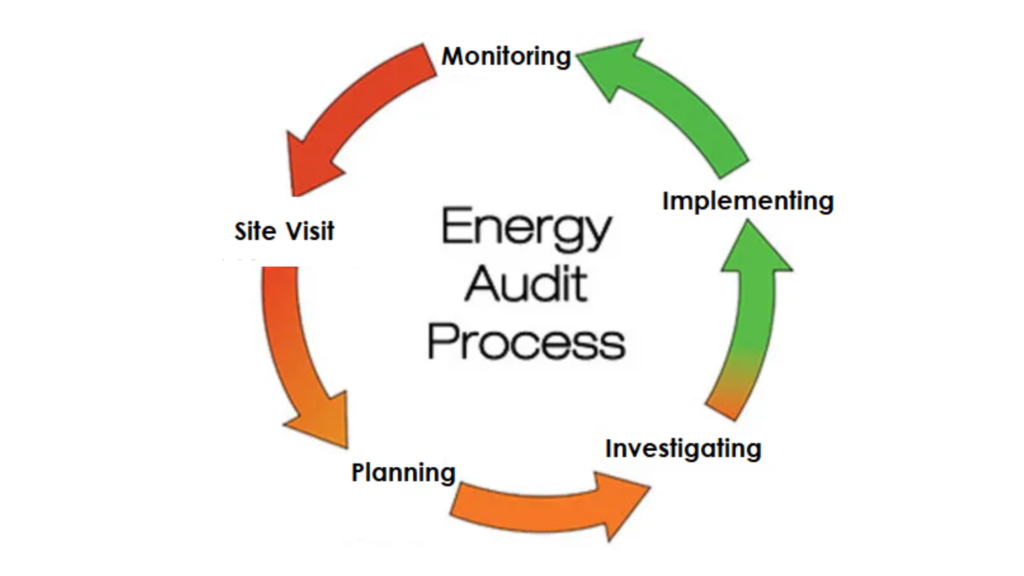A home energy audit business involves evaluating a residential property’s energy use to identify what steps can be taken to reduce energy consumption and increase efficiency. This audit includes an evaluation of insulation levels, HVAC systems, windows, doors, and other critical components that contribute to a home’s energy consumption. The purpose is to provide homeowners with recommendations that can reduce their energy costs, increase comfort, and reduce environmental impact. This service often includes a detailed report that outlines suggested improvements or changes, potential cost savings, and return on investment.

Starting a home energy audit business requires an understanding of the principles of energy efficiency and the ability to recommend improvements. With the growing focus on sustainability and energy conservation, this business is becoming increasingly relevant. It allows entrepreneurs to provide valuable services to homeowners looking to reduce their energy costs and environmental impact, and it can be easily operated with little initial investment, leveraging basic equipment and industry knowledge.
Table of Contents
1. Starting a Home Energy Audit Business: Research and Planning
Studying the energy audit industry and preparing a solid business plan is the first and most important step in starting this business. In this step, you need to gain in-depth knowledge about the current state of energy audits, market demand, competition, and potential clients. You need to understand what energy audit services are and what type of problems they solve. Prepare a detailed business plan that includes detailed information about your services, target markets, pricing, marketing strategies, and financial projections. Also, make sure that your plan clearly defines your business objectives and long-term goals. This plan will not only lay the foundation for your business but will also attract investors and partners.
2.Registering the Business and Obtaining Necessary Licenses or Certifications
The first thing you need to do to start a home energy audit business is to legally register your business. For this, you need to visit your local business registrar office and submit the required documents and details, such as the name, address, and type of business. Next, you need to obtain a business license, if your location requires it, which will ensure that your Home Energy Audits business complies with local rules and regulations.

Additionally, you may need to obtain certifications related to energy auditing, which will certify your professional qualifications and credibility. You can get these certifications from local or national energy authorities or professional organizations. Completing these legal procedures will give your business legitimacy and also increase customer confidence.
3. Training and Certification: Acquiring the Necessary Skills in Energy Auditing
Getting training and certification in energy auditing is a crucial step that is essential for the success of your business. There are accredited training programs and certification courses in this field that provide you with in-depth knowledge about ways to identify, evaluate, and improve energy use. These trainings make you aware of the correct use of energy auditing tools, information on energy efficiency standards, and methods for preparing reports. Through these programs conducted by certified trainers, you will be able to effectively implement energy saving measures, providing better advice and services to your clients. In addition, certification also increases your professional credibility, allowing you to set up and operate your business more effectively.
4. Equipment Purchasing and Marketing Strategy
Equipment purchasing is crucial in a home energy audit business, as the right equipment directly impacts the accuracy of your analysis and quality of service. Essential equipment includes thermal cameras and energy meters. Thermal cameras allow you to measure the temperature of walls, ceilings, and other surfaces, making it easier to identify energy flow and thermal leaks. Energy meters help monitor energy usage in your services, allowing you to provide accurate data to clients. The prices of these devices may vary, but you may need to invest ₹30,000 to ₹50,000 for a good quality device.

An effective marketing strategy plays a key role in the success of your home energy audit business. First of all, it is important to create a professional website that clearly displays your services, pricing, and contact information. Also, using social media platforms can help you reach out to potential customers and build your brand identity. Posting regularly on platforms like Facebook, Instagram, and LinkedIn and running targeted ads will increase the visibility of your services. For an effective marketing campaign, you should budget ₹10,000 to ₹30,000, which will be spent on your website development and social media management.
5. Ways to attract customers and continuously improve the business
In the customer acquisition phase, you need to create a solid strategy to establish your home energy audit business. First, use effective advertising and promotions to attract your target customers. Create a professional website and your presence on social media platforms so that potential customers can know about your services. Partner with the local community, real estate agents, and home improvement centers to get customers through referrals. Maintain a good relationship with customers first and focus on their satisfaction, as positive feedback and word-of-mouth recommendations will play a vital role in the growth of your business.
Under continuous improvement, you need to stay up-to-date with the latest trends and techniques in the industry. Attend training and seminars regularly to learn about new research and methods in the field of energy efficiency and environmental protection. Use the latest tools and techniques to upgrade your service offerings. Analyze the feedback received from customers and make necessary changes in your services so that your offerings always remain relevant and impressive. This continuous improvement will keep your business competitive and ensure customer satisfaction.
6. Estimated Investment to Start Home Energy Audit Business
Starting a home energy audit business requires you to invest in various areas. First, you need to get trained in energy auditing, which can usually cost ₹10,000 to ₹20,000, including training courses and certification fees. Next, you need to buy the equipment required for auditing such as thermal cameras, energy meters, and other equipment, which can cost ₹20,000 to ₹30,000.
Apart from this, there will also be some expense to register the business legally and obtain the necessary licenses, which can range from ₹5,000 to ₹10,000. Initial marketing, such as creating a professional website and advertising on social media, can cost an investment of ₹15,000 to ₹30,000. Overall, starting this business requires an investment of ₹50,000 to ₹1,00,000, combining all these components.

In conclusion, the home energy audit business offers an exciting opportunity that is perfect for entrepreneurs looking to enter the energy efficiency and sustainability space. Through this business, you can examine the vital aspects of energy use of residential properties and provide effective recommendations for improvement, helping homeowners reduce their energy costs, increase comfort and reduce environmental impact. With a low initial investment requirement and reliance on basic equipment and industry knowledge, this is a viable and effective business model. As awareness of energy conservation grows, the demand for professional energy audits is also expected to grow, making it a timely business start that aligns economic and environmental goals.
If u want to Watch the Video You can visit to our You tube Businovations Channel and watch the video……
Click the link to read the Recent Posts….
Start a Affiliate Marketing Business with Low Investment: Strategies and Tips (233)


One thought on “Start a Home Energy Audits:Easy Strategies and Tips (272)”